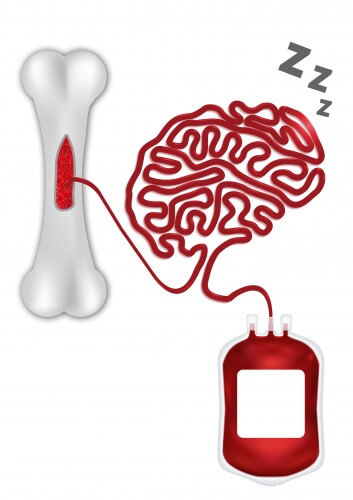A new study reveals that this "navigational skill" of the stem cells is dramatically impaired if the donor does not sleep well in the four hours preceding the donation of the cells. As a result, the success of the transplant decreases by 50%.

Lack of sleep dramatically (50%) reduces the success of a bone marrow cell transplant. This is according to a study by Associate Professor Asia Rolls from the Technion, published this month in the journal Nature Communication. Associate Professor Mishna Rolls, a faculty member at the Rapaport Faculty of Medicine at the Technion, conducted the research during her postdoctoral period at Stanford University and continued it in her lab at the Technion together with research student Ben Korin.
Bone marrow transplants, more specifically "hematopoietic stem cell transplants", are performed at the rate of tens of thousands of treatments per year. This is an effective practice for the treatment of certain types of cancer because it involves stem cells, which are capable of renewing the blood system and the immune system of the sick person. The stem cells injected into the patient's blood "navigate" to designated niches in the patient's bones and regenerate the circulatory system.
A new study reveals that this "navigational skill" of the stem cells is dramatically impaired if the donor does not sleep well in the four hours preceding the donation of the cells. As a result, the success of the transplant decreases by 50%.
"Our research was done in mice, so it is still too early to draw conclusions about humans," explains Prof. Mishna Rolls. "Nevertheless, the study points to the importance of sleep in medical procedures. It is clear that in particularly critical and complex processes such as bone marrow transplantation, which requires a great deal of effort in locating a donor and carrying out the treatment, it is important that we fully understand the effect of sleep on the success of the medical intervention. If we discover that indeed, lack of sleep in the donor harms the success of the transplant even when it comes to humans, we will have to think carefully about how to take care of good sleep - something that is currently difficult to achieve in a hospital stay. There is of course room for optimism here, since this is not an insurmountable obstacle; If we allow the donor to sleep before the transplant, we will increase the chances of success. Furthermore, in the experiment we performed, it became clear that in order to restore the relevant abilities, two hours of 'restorative sleep' is enough for the donor."
The research, supported by the US National Institutes (NIH), was conducted in collaboration with researchers at the Stanford School of Medicine - Prof. Luis de Lechea from the Department of Psychiatry and Prof. Irving Weizman, Director of the Stem Cell Center. According to Associate Professor Rawls, since stem cells are involved in the regeneration of the blood and immune systems, there is a reasonable basis for assuming that sleep disorders have effects that go beyond the specific field of bone marrow transplants.
